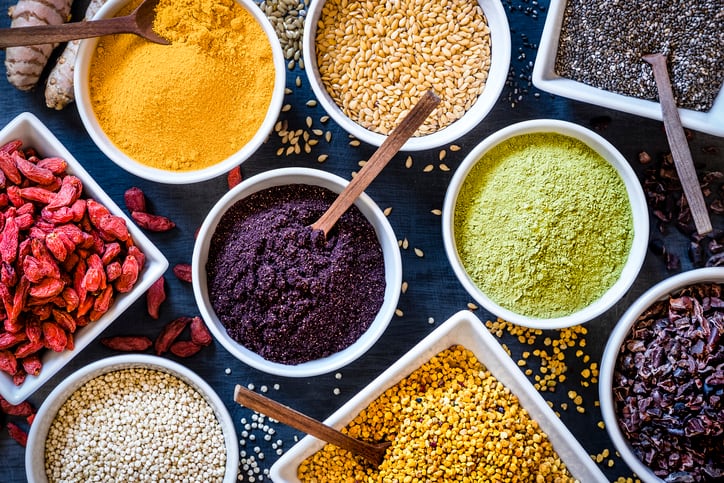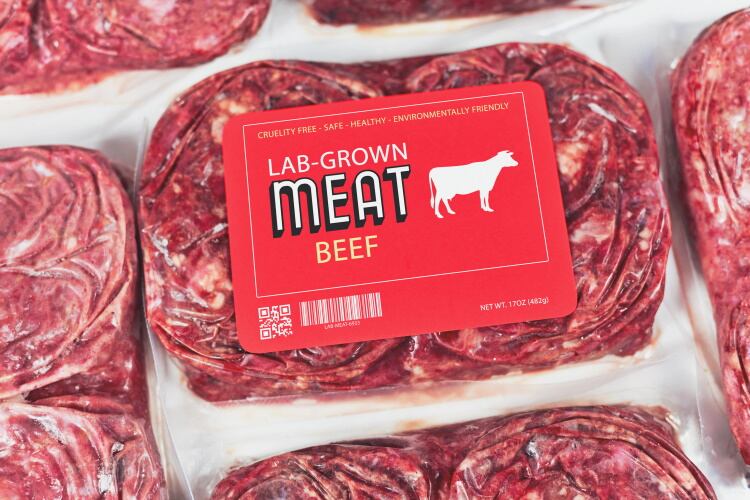The Social Market Foundation said that alternative proteins – including plant-based, fermented and cultivated meat – can help address climate change, improve animal welfare and increase consumer choice.
Its report – called Putting British success on the menu: Time for a UK alternative proteins strategy – said supporting the creation and sale of alternative proteins could also create jobs and open up new export opportunities for the UK.
Retail sales in western Europe rose 19% to a record €2.4 billion in 2021, according the Good Food Institute, an NGO. Vegetable and plant-based alternatives were equivalent to 4% of total meat sales in 2021, worth around £1.5bn.
Last year British alternative protein businesses attracted over £150 million of capital investment.
But the SMF found that Government departments lack a coherent approach to policies on alternative protein, meaning British productive capacity is likely to lag against other advanced economies. China recently adopted a five-year plan to support cultivated meat, while Denmark and the Netherlands are spending hundreds of millions of euros on research and development.
In the Netherlands, for example, an initial €60 million government investment has been made to support the development of a cellular agriculture ecosystem. Denmark has earmarked $168 million for plant-based R&D, including the $100 million Plant Fund announced in April 2022, as part of a new climate deal approved by all major political parties.
In contrast, the SMF said UK alternative protein policy was underdeveloped and underfunded, with responsibility scattered between government departments.
The SMF report drew on a discussion of senior policymakers and officials and was sponsored by Impossible Foods. The SMF said it retained editorial independence.
Experts at the SMF roundtable reported that a lack of overall policy ownership and Whitehall inaction are preventing the UK from developing and implementing a clear strategy on alternative proteins.
Ministers have failed to grip the issue despite identifying alternative proteins as a post-Brexit “opportunity”, the SMF said.
“A failure to act soon risks the UK falling behind international competitors, foregoing opportunities for British businesses, and hindering the transition to greener diets. Government must do more to catalyse a consumer-led transition in dietary behaviours,” the SMF report said.
The SMF emphasised that alternative proteins are an opportunity to boost consumer choice and warned against measures like meat taxes that restrict what people can buy and eat.
Instead, the report calls on policymakers to help British businesses in the global race for affordable, healthy and tasty alternatives to animal-based meat, dairy and seafood.
A new UK alternative proteins strategy should be developed by the Government within the next 12 months, the think-tank report said.
“The strategy should adopt a long-term perspective and consider the wide-ranging possibilities and challenges arising from the protein transition,” the SMF said.
Linus Pardoe, SMF research associate, said: “Sustainable proteins will be a big part of British diets over the coming decade and this is a real opportunity for Britain’s leading food industry, entrepreneurs and scientists to come together to make alternatives affordable, tasty, and healthy. At the moment, the Government isn’t doing enough to light the fires of innovation and drive a consumer-led transition to greener diets.”
“The Government has pointed to alternative proteins as an archetypal Brexit opportunity. But current inertia in Whitehall risks squandering opportunities for British businesses, offshoring the benefits of sustainable proteins to countries like China, Denmark, and the Netherlands.”
Pat Brown, Impossible Foods Founder and Chief Visionary Officer, said: “The rapid development and adoption of plant-based proteins is an extraordinary opportunity for positive, consumer-driven change, and it has the potential to be a powerful part of the UK’s ambitious goal of reaching Net Zero by 2050. UK policymakers should not overlook the power of the food system as both a major economic growth driver and a solution to the world's climate issues.”
Other recommendations from the report:
• The Government should commission an innovation needs assessment for alternative proteins to better understand the scale of R&D required and where money could be spent most effectively.
• Supermarkets should publicly disclose what proportion of protein sales come from plant-based products, striving to reach 30% by 2030.
• Reforms to Government Buying Standards for food should leverage the power of the public sector to aid the transition to meat, dairy and seafood alternatives.
• Improve public data on animal-based protein consumption.
Greenwashing and ‘culture war’ concerns
But is it counterproductive to focus on the environmental credentials of alt proteins?
For example, Tesco’s ‘Plant Chef’ vegan burger adverts have been banned by the Advertising Standards Authority (ASA) after being accused of making “misleading” claims.
Tesco had implied that buying Plant Chef burgers would “positively affect the environment” as it suggested that customers could “do their bit” for the environment by swapping to plant-based burgers.
But the ASA concluded that the “claims regarding their positive benefits to the planet had not been substantiated and were likely to mislead”.
Concerning this ruling, campaigning organisation the Countryside Alliance said: “The judgment should not be ‘meat bad, plant-based good’, but ‘locally sourced and sustainably produced good, food miles and heavily processed bad’.
"Red meat produced in Britain is among the most sustainable in the world. Despite the endless propaganda, cattle and sheep account for just 3.7 per cent of UK carbon emissions if you include the carbon stored in grassland and, unlike some plant-based products, very little meat consumed in the UK comes from systems that deplete rainforests and generate large amounts of emissions.
“Knowing where your food comes from and how it is produced is far more important than whether it is animal or vegetable. Challenging assumptions about the benefits of some plant-based products and the casual denigration of livestock farming matters because, if they are allowed to go unchallenged they threaten the sustainability of both the planet and the countryside.”
Could this polarised atmosphere dissuade some consumers from buying plant-based/(future) cultivated products, as well as increase the instances of corporate greenwashing?
The SMF told FoodNavigator it recognises concerns about a culture war over meat consumption and makes the case that this should be fundamentally a question of consumer choice. Its report states: "The Government’s Net Zero strategy pledges to work “with the grain of consumer choice” as the UK decarbonises. This report argues that government should adopt a policy position that expands consumer choice and the market for alternative proteins. A failure to act soon risks the UK falling behind international competitors, foregoing opportunities for British businesses, and hindering the transition to greener diets."
That said, “it is hard to overstate the evidence that alternative proteins have considerable environmental advantages when compared with meat, dairy and seafood products on the market,” said the SMF’s Pardoe. “This evidence is increasingly robust, and we reference several studies in the report.
“Nonetheless, our report does point to evidence that the socio-economic impact of alternative proteins has been under addressed, perhaps because of an over-focus on AP's environmental credentials. Hence, we point to potential economic gains, improvements in animal welfare, and opportunities for arable farmers.”
Pardoe disputed some of the claims made by the Countryside Alliance, particularly with regards to meat consumed in the UK being disconnected from deforestation. But he stressed: “We are not advocating for a zero-sum game. In the report we state there is an opportunity for alternative proteins, alongside ‘traditional’ plant-based proteins, to play an important role in our food system harmoniously with more extensive agricultural practices."





